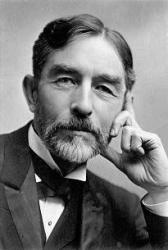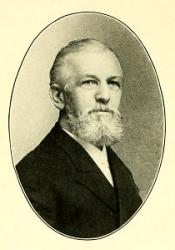1721 - 1797 Person Name: Johann Samuel Dietrich Hymnal Number: d18 Author of "Auf, Jesu Juenger, freuet euch" in English and German Gospel Songs, or The Ebenezer Hymnal Diterich, Johann Samuel, eldest son of A. M. Diterich, pastor of St. Mary's Church, Berlin, was born at Berlin, Dec. 15, 1721. After studying at the Universities of Frankfurt a. Oder, and Halle, he was for some time a private tutor in Berlin. He was, in 1748, appointed diaconus of St. Mary's Church in Berlin, and regimental chaplain, becoming, in 1751, archidiaconus, and, in 1754, pastor of St. Mary's. In 1763 he was appointed private Chaplain to the Queen, and in 1770 a member of the Supreme Consistory. He died at Berlin, Jan. 14, 1797 (Koch, vi. 228-231; Allg. Deutsche Biog., v. 258-259). His hymns appeared in the following works:—
(1) Lieder für den offentlichen Gottesdienst Berlin, 1765, with 23G hymns, edited by himself and his col¬leagues in Stanzas Mary's Church. Designed as a supplement to Porst's Gesang-Buch of 1713. (2) Gesangbuch zum (foltesdienstlichen Gebrauch in den Königlich-Preus-sischen Landen, Berlin, 1780, with 447 hymns principally edited by himself. (3) Gesangbuch für die häusliche Andacht. Berlin, 1787, with 421 hymns, principally of recent date.
None of these books give names of authors. Diterich seems to have contributed about 100 hymns either original or entirely recast, besides rewriting portions of many others. He distinguished himself as a leader in the unhappy process of “modernising" and "improving" the older German hymns, by which they were reduced to 18th cent. "correctness," and had all the life polished out of them. His 1765 collection formed the model of many wretched hymn-books, and his influence is even seen in such recent collections as the Hamburg Gesang-Buch 1842, the Nassau Gesang-Buch, 1844, and the Gesang-Buch für die evang. Landeskirche im Grossherzogtum Sachsen, Weimar, 1883.
A number of the recasts from the older hymns which appear under Diterich's name are noted in this Dictionary under the names of their original authors. The following may be regarded as practically original:—
i. Schon ist der Tag von Gott bestimmt. [Second Advent.] 1765, as above, No. 129, in 8 stanzas of 7 lines. Included as No. 390 in the Nassau Gesang-Buch, 1844. The only translation in common use is:—
The trumpet sounds! the day is come! A full and good translation in Dr. H. Mills's Horae Germanica, 1845 (ed. 1856, p. 332). Dr. Hatfield included stanzas i., iv., vi., vii., altered, in his Church Hymn Book, 1872.
The following, although not in English common use, are available for hymnological purposes :—
ii. Auf Erden Wahrheit auszubreiten. Christ's Ministry. 1787, as above, No. 79, in 10 stanzas. Translated by Dr. H. Mills, 1845 (ed. 1856, p. 283), as "That men to truth might not be strangers."
iii. Auf! Jesu Jünger! freuet euch! Ascension. 1765, as above, No. 79, in 12 stanzas, and is based on E. Alber's hymn "Nun freut euch Gottes Kinder all" (q. v.). Two forms have been translated (1) “Auf, Christen, auf und freuet euch," in the Berlin Gesang-Buch, 1780, No. 114; tr. as "Rejoice, ye saints, your fears be gone," by Dr. H. Mills, 1845 (ed. 1856, p. 324); and (2) "Ihr Jünger Jesu, freuet euch," in the Trier Gesang-Buch. (R. C), 1846, p. 94. Tr. as "Rejoice, ye saints, in glad accord," by Dr. R. F. Littledale, in Lyra Messianica, 1864, p. 371.
iv. Herr, meiner Seele grossen Werth. Greatness of the Soul. 1765, as above, No. 195, in 9 stanzas. Translated by Dr. H. Mills, 1845 (ed. 1856, p. 30), as “Lord, on the soul's enduring worth."
v. Mein Heiland lebt. Er hat die Macht. Resurrection of the Dead. 1765, as above, No. 123, in 8 stanzas. Translated by Miss Manington, 1863,p. 75, "My Saviour lives, and He the might."
vi. O Jesu, wahrer Frömmigkeit. Jesus our Example. Seems to have been suggested by J. J. Rambach's "Du wesentliches Ebenbild " in his Haus Gesang-Buch, 1735, No. 84. First published 1789, as above, No. 59, in 8 stanzas. Translated by Dr. H. Mills, 1845 (ed. 1856, p. 285), as "Jesus, of what we should approve." [Rev. James Mearns, M.A.]
-- John Julian, Dictionary of Hymnology (1907)
Johann Samuel Diterich


 My Starred Hymns
My Starred Hymns




